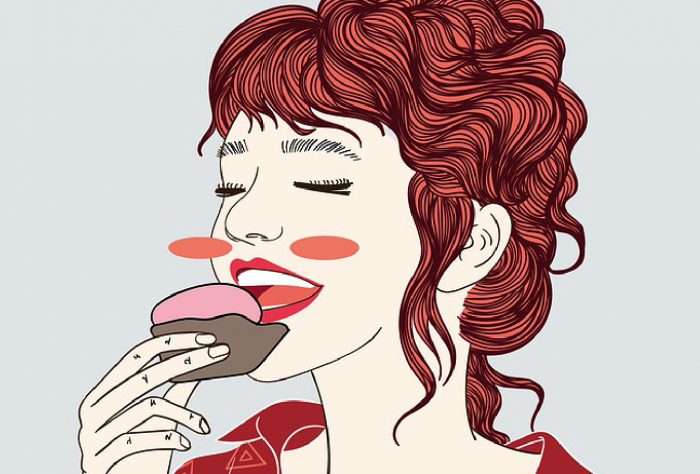*Editor’s Note: Elephant is not your doctor or hospital. Our lawyers would say, “This website is not designed to, and should not be construed to provide medical advice, professional diagnosis, opinion, or treatment to you or any other individual, and is not intended as a substitute for medical or professional care and treatment. Always consult a health professional before trying out new home therapies or changing your diet.” But we can’t afford lawyers, and you knew all that. ~ Ed.
Oh, gluten.
People suffering from gluten intolerance or celiac disease are supposed to stick to a gluten-free diet. Even if you do not suffer from gluten intolerance, there are several benefits of going gluten-free.
To avoid gluten, you will have to stick to a diet that is free from most grains. Gluten is present in most cereals. You will also find it in snacks, bread, and common beverages.
Here are some of the health benefits you enjoy after you decide to go for gluten-free foods:
1. Reducing Lactose Intolerance
People who suffer from gluten intolerance have a high chance of developing lactose intolerance. Lactose indolence is caused by damage to the gut lining where the lactase enzyme is produced. When you stop eating gluten foods, your gut health will improve, and in effect, you will avoid the effects of lactose intolerance.
2. Improving Bone Health
People who suffer from gluten indolence also suffer from calcium deficiency because of malabsorption—the effects of celiac disease cause it. When you avoid foods that lead to gluten intolerance, you will reduce the risk of bone problems. Research shows that you can avoid the risk of osteopenia and osteoporosis after you reduce your intake of foods rich in gluten.
3. Improving Skin Health
People who have celiac disease are at high risk of developing skin rashes. They are also at risk of developing eczema and psoriasis. A gluten-free diet can play a significant role in improving the skin of an individual. When you avoid food rich in gluten, you will avoid health complications and start enjoying good health.
4. Reduces Hair Loss
Research shows that celiac disease leads to nutrient deficiency due to its effects on the gut. People who suffer from gluten intolerance are unable to absorb enough minerals that can support healthy hair growth. A gluten-free diet will play a significant role in reversing hair loss. The move can improve hair density and texture.
5. Improves Energy Levels
Those who suffer gluten sensitivity tend to experience chronic fatigue. Consumption of gluten leads to intestine damage in people who have gluten intolerance. There is poor absorption of energy that leads to chronic fatigue. The effects of gluten also lead to poor absorption of iron in patients. The effect can lead to anemia. You can improve nutrient absorption after you decide to stop consuming gluten-rich foods.
6. Promoting Healthy Weight Gain
When people have celiac disease, they tend to suffer from diarrhea, gas, bloating, and fatigue. Some people experience gluten intolerance, and it affects them for several years without being diagnosed. They can regain a healthy weight if they stop eating foods that have gluten. You will avoid severe uncontrolled weight loss if you can prevent gluten foods.
7. Eliminates Bloating
Gluten intolerance leads to bloating. You will avoid experiencing excess gas and bloating after you stop eating foods that will expose you to the side effects of eating gluten-rich foods. People who suffer from gluten intolerance tend to experience immediate relief from the excess gas and bloating. It will make you feel comfortable after every meal if you can stop gluten.
Avoiding gluten in your diet will also lead to other benefits such as:
>> Eliminating joint pain
>> Reducing the frequency of headaches
>> Managing depression
So, is gluten the enemy? Or is it one of those questions that are solved by “it depends?”
~











Read 1 comment and reply